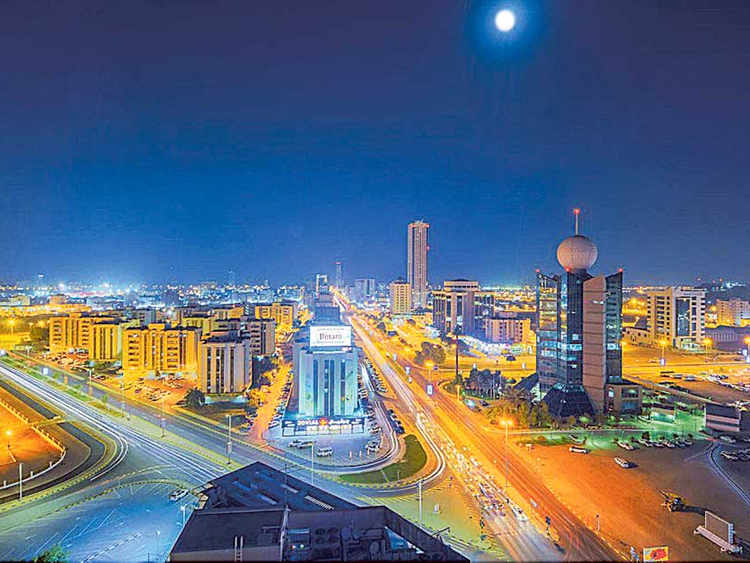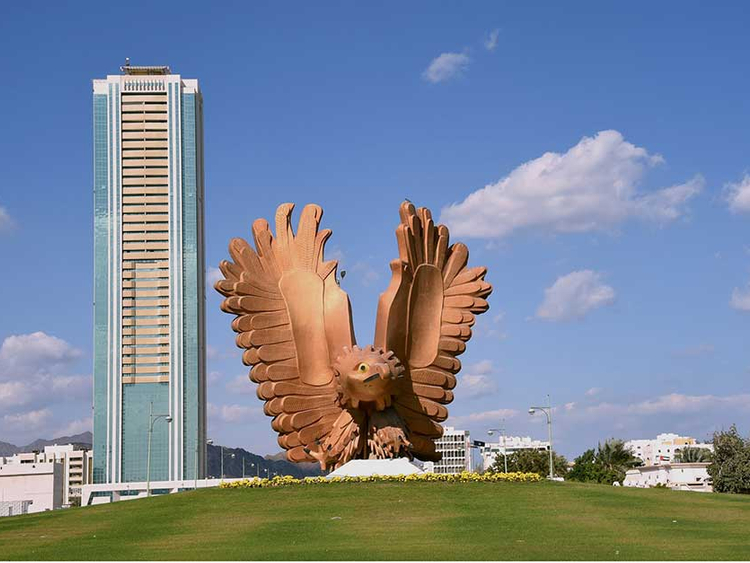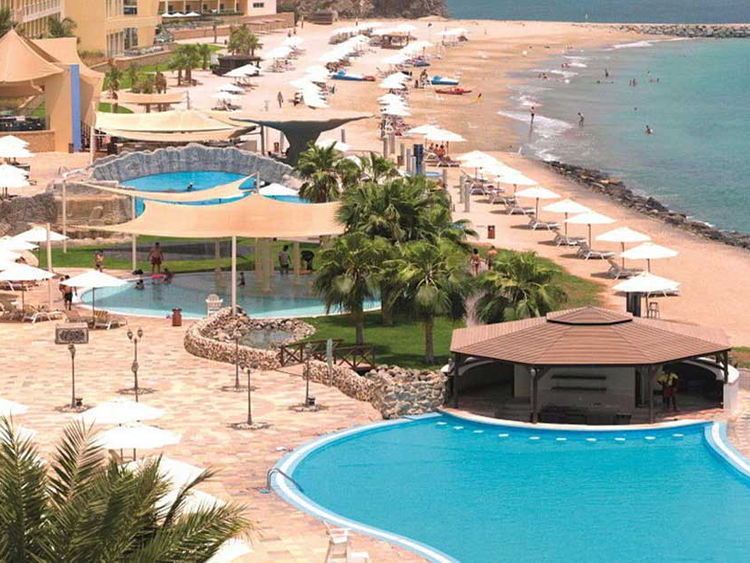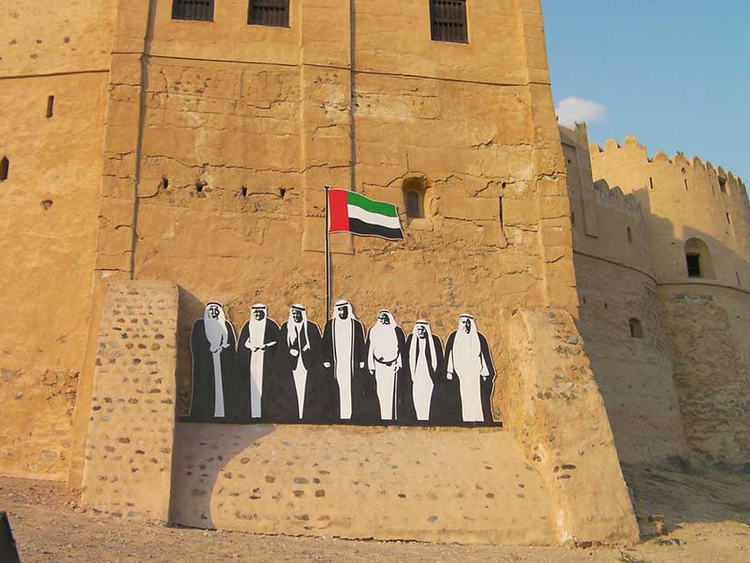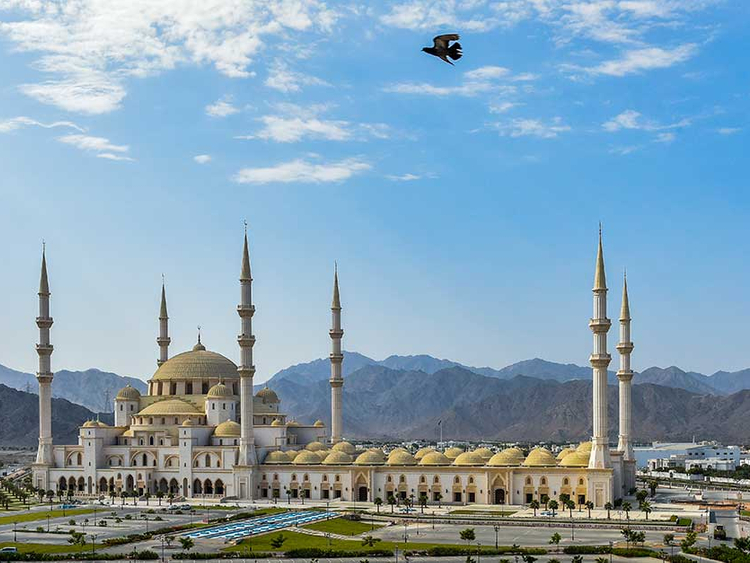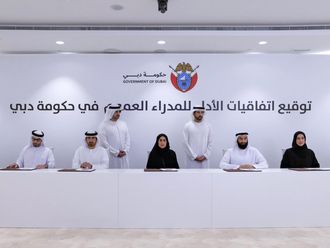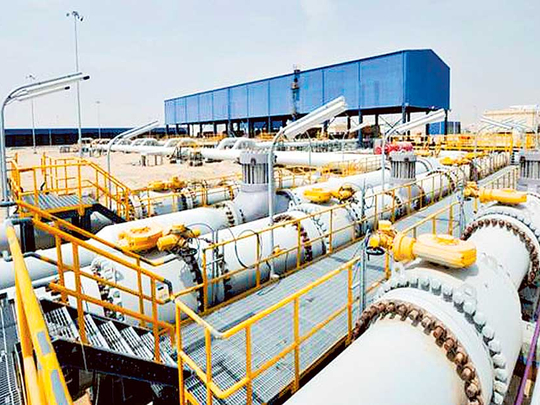
Fujairah: Giant investment projects currently undertaken in Fujairah form a key part of the UAE vision 2021, and Emiratis have started to reap the fruits, said His Highness Shaikh Hamad Bin Mohammad Al Sharqi, Supreme Council Member and Ruler of Fujairah.
“Fujairah has made rapid strides in social and economic development, and is now witnessing a wide-scale shift in all domains, making it an economically competitive global destination,” said Shaikh Hamad during an interview with Emirates News Agency (WAM).
“As we celebrate the 45th anniversary of the UAE National Day, we consider December 2 an exceptional red-letter day in the history of the nation and immortal memory that exemplifies an epic historical event. It is a story of success that is full of lessons for today and tomorrow’s generations. These are lessons that they can learn from. It is a day in which a dream became a reality, a dream realised by the late Shaikh Zayed Bin Sultan Al Nahyan, who built a union consisting of seven emirates under one banner,” said Shaikh Hamad.
Shaikh Hamad took the opportunity to congratulate the President of UAE and Ruler of Abu Dhabi His Highness Shaikh Khalifa Bin Zayed Al Nahyan, His Highness Shaikh Mohammad Bin Rashid Al Maktoum, Vice-President and Prime Minister of the UAE and Ruler of Dubai, and Their Highnesses Supreme Council Members and Rulers of the Emirates.
“Today, after 45 years of the creation of the union, the UAE confidently and competently stands among the world’s most advanced countries. Today also marks the beginning of a better future for citizens,” said Shaikh Hamad.
When asked about his most treasured achievement, Shaikh Hamad said: “Dubai’s win to organise the World Expo 2020 is an overwhelming achievement because the UAE has become the first in the region and entire Middle East to host this event.”
“This win reflects the cultural diversity and the values of tolerance, moderation, respecting human rights and good hospitality enjoyed by the UAE, which sets an honourable Arab model that we are immensely proud of,” said Shaikh Hamad.
Shaikh Hamad said that since he became the ruler of Fujairah, he had been keen on staying in touch and interacting with the emirate’s citizens to inquire about their needs and use all means to serve Emiratis.
Regarding Fujairah being home to natural resources, apart from its beautiful coasts, he said: “Fujairah’s potential in the field of agriculture is huge, given its abundant natural resources, but we are focusing on human development because human capital is our top priority.”
Asked about whether Fujairah is an industrial, agricultural or tourism emirate, Shaikh Hamad replied: “Fujairah enjoys a significant strategic location, and is a gateway for all ships coming from the north and west of the UAE. That is why we have great confidence in the emirate’s potential to become the UAE’s first port, if federal and local infrastructure projects are completed.”
“Fujairah has plans in the pipeline to create a sophisticated infrastructure for factories, warehouses and maintenance workshops, along with its petrochemical and logistic industries; this gives an outlook for the emirate’s industrial future.”
“As for tourism, Fujairah is the jewel of UAE tourism because it is home to historical landmarks, archaeological sites and its climate makes it an attractive destination for tourists from all around the world.”
Big on agriculture, the emirate is home to 27,000 farms, pointed out Shaikh Hamad.
“Fujairah is a global hub for logistic oil industries, and it contains the world’s second largest port which supplies ships with fuel, and it is the third largest in the world for storing oil and its derivatives. It also has the first berth for very large crude carriers (VLCC). This has put the emirate on the world map of oil trade,” Shaikh Hamad said.
When asked whether Fujairah would be an alternative to the Hormuz Strait in times of misunderstandings, Shaikh Hamad replied: “In case of such a scenario, the practical implementation of the solution has been completed, represented in the completed and operational Habshan-Fujairah oil pipeline. This strategic achievement will not require Emirati oil to pass through the Hormuz Strait. It is ready to transport 70 per cent of the UAE’s oil to world markets.”
Shaikh Hamad said that any threats to close down the Hormuz Strait no longer holds water, and was something they were not bothered about anymore.
“We are honoured to be a part of the solution for this regional and global quandary; it is a source of pride for the UAE to lend a helping hand to neighbours and friends in case of a looming crisis. We hope that the Habshan-Fujairah oil pipeline has the capacity to accommodate the Gulf Cooperation Council’s oil exported to global markets.”
Shaikh Hamad indicated that 20 to 30 VLCC pass through the Hormuz Strait every day, with an average of one carrier every six minutes during peak hours, with 40 per cent of Gulf oil on-board those carriers.
When asked about future plans to cope with the emirate’s population growth, he replied: “Fujairah has short and long-term plans focusing on sustainable development. There are plans to increase office space by 20 per cent and building 8,800 new housing units, as well as 1,500 hotel rooms over the next five years. There are also plans to expand Fujairah Airport and its runway and developing trade activities. As for Fujairah port, there are plans for new oil stations and improving maritime services.”


